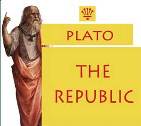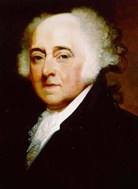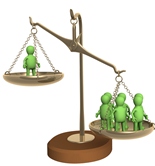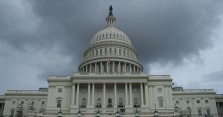Today, I read two things in the “Opinion” section of the Waterloo Courier that reinforced a concern that I’ve had for quite awhile now. That concern regards a fundamental misunderstanding that many Americans have as to the nature of our Republic (a representative democracy), and that misunderstanding is corroding our nation.
A columnist wrote: “People are fed up with leadership in America all the way from the local to the national level. Our ‘public servants’ act more like public masters who avoid being downwind form the unwashed public and ignore majority wishes after being elected.”
A letter to the editor opined: “Christians with an orthodox view of Scripture who take Biblical condemnation of homosexuality seriously have a strong theological case.”
These two observations, while seemingly disconnected, have one thing in common: They don’t understand our representative democracy.
How many Americans can actually define a “Republic”?
 I’m not attempting to be pedantic or condescending, but it has occurred to me that a lot our political debate is centered around the concepts of representative government, and the words “democracy” and “republic” are bandied about freely with the assumption that we all know exactly what they mean.
I’m not attempting to be pedantic or condescending, but it has occurred to me that a lot our political debate is centered around the concepts of representative government, and the words “democracy” and “republic” are bandied about freely with the assumption that we all know exactly what they mean.
 As Plato is my witness, I believe that the words are not understood and that is causing a great deal of confusion for too many people as we try to improve our governmental processes, elect good representatives and in our understanding (or misunderstanding) of the parameters of government.
As Plato is my witness, I believe that the words are not understood and that is causing a great deal of confusion for too many people as we try to improve our governmental processes, elect good representatives and in our understanding (or misunderstanding) of the parameters of government.
Our Founding Fathers designed a republic, with democratic principles, to ensure that the voices of all the people are represented. They understood that the citizens within a republic, under the auspice of a charter (our Constitution), will elect representatives to govern, and because they are bound by that charter defining the limits and the powers of the state, the people are kept free.
The fact that people vote for representatives is not what keeps them free, it is their willingness to live by that charter.*
A pure, or direct, democracy, on the other hand, is government by the majority. It could also be defined as “mob rule.” There is still a political unit formed by citizens in a democracy, but this group rules directly and runs the state. They may delegate specific leadership tasks to individuals, but the ruling force in a democracy is not a charter (if there even is one), but the vote of the majority.*
There is a chasm of difference between these two systems of government and the concern at the Constitutional Convention was that the government they created would  be too democratic because a majority could vote itself anything it wanted. The potentially dangerous slide into a direct democracy was foreseen by John Adams who observed, “Our experiment with being a Constitutional Republic is rapidly coming to an end….democracy never lasts long. It soon wastes, exhausts, and murders itself.”
be too democratic because a majority could vote itself anything it wanted. The potentially dangerous slide into a direct democracy was foreseen by John Adams who observed, “Our experiment with being a Constitutional Republic is rapidly coming to an end….democracy never lasts long. It soon wastes, exhausts, and murders itself.”
Historian, Alexander Marriott, points out, “When ignorance of this distinction contends that this country is strictly a democracy, a disservice is done to all of the people who created and have fought for our republic.”
Our representative government was created to contain the tyranny of a majority that could, in fact, limit freedoms because the law is whatever the majority says is the law. No inalienable right would be safe, not even freedom of speech.
limit freedoms because the law is whatever the majority says is the law. No inalienable right would be safe, not even freedom of speech.
While it is not the duty of elected representatives to defy the will of the majority, it is their duty to weigh a majority opinion equally with a minority in order to determine what is best for the Common Good. Whether our debate is over health care, military deployment, budgets, debt ceilings, or religious freedom, it is not the will of popular opinion that determines legislation, it is the government that was elected by us.
The columnist above misses the point that a representative democracy can make determinations that are contrary to the will of the majority population. A woman’s right to vote, for example, was not a popular consensus across America, but enough elected legislators in enough states realized that it was correct for a constitutional government predicated on freedom and equality.
The letter writer above, defending the actions of religious moralizing, has missed the most crucial aspect of religious freedom within a republic. Fundamentalists do have the right to exercise their beliefs as they wish, but only within the circles of their religion, and not in the context of the republic as a whole, if those beliefs contradict the freedoms of others.
Not one of us has to agree with any legislative decision, but we have agreed, by our acceptance of our constitutional charter, to abide by them. Our charter also protects freedom of speech, and our right to petition the government with a redress of grievances; collectively that is how we contain the government that is designed to protect us.
Plato predicted that in the long run a democracy will always become a tyranny, either by majority, or if the majority screws things up so badly and a tyrant seizes power from the ensuing chaos. We must keep coming back to these fundamental understandings and definitions before we can create the change that will, instead, improve government, secure our freedom, and claw our way out of this maddening cycle of anger that produces shutdowns, filibusters and stalemates.
*Alexander Marriott
